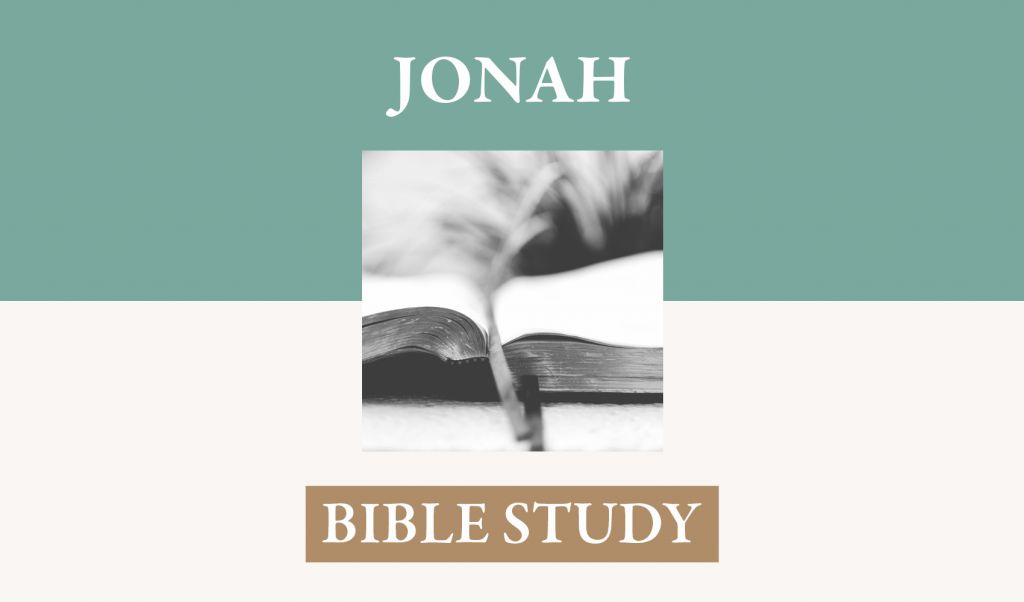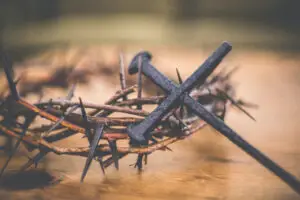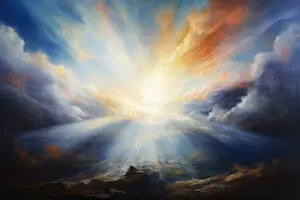I. An Overview of important ideas in teaching Jonah
A. The truth of the book of Jonah has been one of the most ridiculed prospects in the history of biblical interpretation, but one of the books whose historicity has the clearest attestation in the New Testament. See Matthew 12:38-41 for Jesus pointing to Jonah as the sign of his resurrection. Jesus summarized virtually the entire book in this confrontation with the Pharisees emphasizing that Jonah was “three days and three nights in the belly of the great fish” and that the Ninevites repented at the preaching of Jonah. In Matthew 16:4 another demand for a sign drew from Jesus a reference to Jonah. Luke 11 records the events of Mathew 12. If one cannot accept the testimony of Scripture and of Jesus that God prepared a fish to swallow Jonah, it will be infinitely more difficult to accept the central truth of Christianity that Christ, after being killed and put into a tomb, rose from the dead and appeared in his risen body to hundreds of people.
B. Jonah is mentioned in 2 Kings 14:25 as a prophet during the reign of Jeroboam. It was a relatively prosperous time in
C. The Rhythm of the Book of Jonah. The book of Jonah shows that God is a God who speaks, is the God that controls all nature, is the God of all nations, is a God of wrath, is the God of Salvation, and a God that delights in mercy. The following outline shows the rhythm of these general themes.
1. Jonah resists the purpose of God For reasons not given till 4:1-3
God uses the fierce power of Nature to control the situation
Jonah explains the reason for divine wrath
God saves the Sailors.
God uses the fierce power of nature to control Jonah
Jonah acknowledges the just display of divine wrath
God saves Jonah
The Lord Makes the fish vomit out Jonah and reissues his command
Jonah preaches the certainty of divine wrath
God saves
2. Jonah resists the purpose of God and complains about the patience and mercy of God – 4:1-3
God uses both a gentle and a fierce aspect of nature to arrest Jonah’s attention.
Jonah justifies his own anger
God enforces the goodness of his purpose of salvation
II. Jonah attempts to avoid God’s call 1:1-3
A. The call to
B. “Their evil has come up before me.” This does not mean that God was unaware of their evil earlier; It had reached a point that God was going to deal with
C. Tarshish appears to be a city in the southwestern part of
D. “From the presence of the Lord” used two times in verse 3 and once in verse 10. Jonah’s rebellion against God’s directive had made him irrational as well as disobedient. How can one escape the presence of him who made both land and sea?
III. The Lord arrested Jonah’s progress to Tarshish by casting a great storm on the sea – Verses 4-6
A. The storm God sent was not designed to break up the ship, but to detain it and make the sailors so desperate that they knew only divine intervention could rescue them. They all began to call on their gods, as well as lighten the load of the ship.
B. Jonah, through all this storm was not only trying to escape geographically, but engaged the escape of sleep. The captain wakened Jonah so that he could call on his God. Which God was true, they did not know. They only knew that a power far beyond theirs was necessary to rescue them. If we felt nearly as concerned about the imminent danger to our souls that sin caused we would be far more solicitous to the God and Father of our Lord Jesus about the eternal welfare of ourselves and others than these sailors were about their temporal welfare.
IV. The ship’s company learn who Jonah is – 7-10
A. Now the ship’s company began to realize that this was a judgment to be placated only by the revealer of the perpetrator of evil. A god was judging the entire ship because of the displeasing actions of one person.
B. They cast lots, and by God’s determining of the lot, Jonah was pointed out.
C. They are amazed and began to question Jonah concerning his identity. Their first question indicates that they know that the storm has a moral cause. If Jonah would not bear witness by personal volition, God would make the heathen draw from him his connection with the God of Israel.
D. When he tells them who he is and the God that he worships (“fears”), they recognize that the confidence he had in the identity of his God was much clearer, more authentic, and more in charge than any god of their perception. His God did not merely inhabit some force of nature, but had made them.
V. Jonah explains that God’s wrath will not be quieted until the offender is removed – 11-16
A. Since Jonah was so certain of the nature of his God and knew that the storm was against him, the sailors inquired about what they should do.
B. At this point, Jonah knew that God’s controversy was with him alone and casting him into the sea was the only solution for the sailors.
C. They sought to avoid doing that, but the storm only grew more furious. When we seek to avoid dealing with that which is the source of God’s controversy with us, we cannot hope to avoid even greater distress. Only confession and repentance will place us in the position to experience God’s mercies through Christ. It is, in fact, one of the distinguishing marks of a Christian that such dealing is the regular habit of his life. “If we are confessing our sins, he is faithful and just to forgive us our sins and cleanse us from all unrighteousness.” (1 John 1:9)
D. When they cast him into the sea. The storm stopped. The sailor knew that Jonah’s God was the only true God and the made sacrifice to him and made vows before him. Even in the midst of his reluctance, God was determined to use Jonah to bring about the knowledge of Yahweh’s holy wrath and tender mercies to even the heathen.
VI. A fish swallowed Jonah and he begins to pray – 1:17-2:4.
A. The language of “appointed” for God’s dealings with Jonah begins.: 1:17 The Lord appointed, or had appointed, a fish; 4:6, The Lord appointed a plant; 4:7 God appointed a worm; 4:8, God appointed a scorching east wind. God was very specific in ”appointing” this series of events in order to bring Jonah to a deep perception about the purpose and character of God. So too, must we see the detail with which God arranges the events for the growth and sanctification of his people in every age. “The sufferings of this present time are no worthy to be compared with the glory to be revealed in us . . and we know that for those who love God all things work together for good” etc. Romans 8 18, 28. God Himself, appoints these things, The sufferings of this present time, to sanctify us that we might glorify his Son.
B. Instead of being swallowed up in the sea of divine wrath, God arranged by sovereign decree and immediate control of all his creatures and all their actions, to save Jonah from the certain death of the deep waters, and place him within the belly of a fish for three days and three nights.
C. Though the prayer is poetic, there seems to be some chronological order to its deeply spiritual exclamations. Upon being cast in the sea, Jonah cried to the God from whose presence he had been trying to escape. Now he needed him to be near and to take particular interest in him (2:1, 2).
1. Out of the belly of Sheol; This could be a metaphor for the belly of the whale, but could also refer to Jonah’s immediate concern that the sea into which he had been thrown would swallow him up in death. The sea was the place of death, the belly of the fish was the place of rescue from the belly of Sheol
2. You heard my voice: Though God had already appointed the fish to rescue Jonah, the prayer of Jonah, nevertheless, was instrumental in this so that God receives glory for his immediate response to the prayers of his people. God arranges for his people’s knowledge of dependence on him, and his response comforts them and convinces them of both his sovereign will and his tender mercy.
3.Verse three – “You cast me into the deep” Though the sailors did it, Jonah knew that this was God’s work. “into the heart of the seas, and the flood surrounded me;” This was the immediate sensation of being hurled in the water and being sucked beneath the waves by the fury of the storm. This was the presentation to his soul and body and conscience of the holy power of the one from whom he sought to escape. He could have been swallowed up in this fierceness for the “flood surrounded” him and “your billows passed over me.”
4. In the midst of this experience of perishing, he receives confidence that he will live. When God brings a person into the deepest and darkest waters of conviction, he often shines a light at the edge of those waves, perhaps prompted by a resignation to the pure beauty of divine justice. That sense of God’s perfections, even in wrath, begins the alteration of a sinner’s mind toward God. Ann Hasseltine (Judson) noted in the deepest part of her convictions, “His justice, displayed in condemning the finally impenitent, which I had before viewed as cruel, now appeared to be an expression of hatred to sin, and regard to the good of beings in general. A view of his purity and holiness filled my soul with wonder and admiration. I felt a disposition to commit myself unreservedly into his hands, and leave it with him to save me or cast me off; for I felt I could not be unhappy, while allowed the privilege of contemplating and loving so glorious a Being.” To this Jonah had come. Driven from the sight of God, he nevertheless, cherished the prospect of standing in the presence of God in holy worship. The one that sought escape from the divine presence, now, in the grips of desperation, sees God’s presence as to be desired above all things.





























